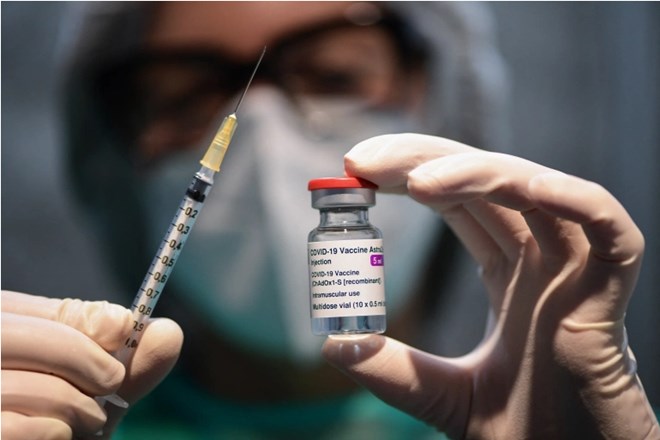
Tuesday March 16, 2021

Germany, France, Italy and Spain have suspended the use of AstraZeneca’s COVID-19 vaccine after several reports of blood clots in people who received the shot in Europe.
The flurry of suspensions on Monday came after a number of other countries, mostly in Europe, halted their rollouts late last week.
The World Health Organization (WHO) has backed the use of the vaccine and said it has seen no evidence that the shot had caused clotting.
The UN health agency is reviewing the reports related to shot and urged countries not to suspend vaccinations, as its top scientist said people should not panic.
The European Medicines Agency (EMA) said in a statement that it has not found any evidence of links between reported thrombosis cases and the AstraZeneca shot, saying that the shot’s benefits outweigh the risks and was safe to use. The regulator is reviewing the shot and will issue a decision on any further action on Thursday, it said.
EU members halt shots
German Health Minister Jens Spahn said the country suspended the use of the shot on the advice of the national vaccine regulator, the Paul Ehrlich Institute.
The institute had called for further investigation into seven reported cases of clots in the brains of people who had received this vaccination.
“Today’s decision is a purely precautionary measure,” Spahn said.
France and Italy announced similar moves shortly afterwards.
French President Emmanuel Macron said the use of the AstraZeneca shot would be suspended as a precautionary measure until at least Tuesday afternoon when the European Union’s medicines regulator – the EMA – will issue its recommendation over the vaccine.
Macron did not elaborate on the reasoning behind the decision, but told a news conference he hoped France would be able to vaccinate with AstraZeneca shots again “soon”.
Italy’s medicines authority AIFA meanwhile said it was implementing its own suspension as a “precautionary and temporary measure” pending rulings by the EMA.
The announcement followed the seizure of hundreds of thousands of doses of the vaccine by Italian prosecutors in the northern region of Piedmont, where a teacher died following his vaccination.
Experts are investigating whether there is a connection between his death and the vaccination.
Late on Monday, Spain’s Health Minister Carolina Darias said the country was suspending its use of the vaccine for two weeks as a “precaution”.
She said the decision would remain in place until the EMA “analyses the recent incidences of blood clots, notably over the weekend”.
AstraZeneca has said there is no cause for concern with its vaccine, which is jointly produced with the United Kingdom’s University of Oxford, and that there were fewer reported thrombosis cases in those who received the shot than in the general population.
Peter Drobac of Oxford University told Al Jazeera the AstraZeneca vaccine went through “rigorous clinical trials” and blood clots were not identified as a problem.
“The safety pause, I think it is certainly the prerogative of the regulators in these countries. However we have heard from the World Health Organization, the European Medicines Agency and others, that at this point the benefits of vaccination clearly outweigh the risks,” Drobac said.
WHO urges calm
The EMA and the WHO also said available data does not suggest the vaccine caused the clots and people should continue to be immunised with the shot.
The WHO on Monday called on countries not to suspend vaccinations against a disease that has caused more than 2.7 million deaths worldwide. The UN health agency’s top scientist reiterated that there have been no documented deaths linked to COVID-19 vaccines.
“We do not want people to panic,” Soumya Swaminathan said, adding there has been no association, so far, pinpointed between so-called “thromboembolic events” reported in some countries and COVID-19 shots.
The reassurances appear to have done little to calm doubts, however, with several countries having now temporarily halted the use of the AstraZeneca vaccine in recent days.
Denmark, Norway, Ireland, the Netherlands, Iceland, Bulgaria, Portugal and Slovenia were among those to suspend the use of the shot.